Ugly Side Effects of Drinking Coffee Every Day, According to the Mayo Clinic

If you're a coffee lover, you already know that drinking a fourth or fifth cup of coffee can leave you feeling jittery, restless, and wildly alert. But did you also know that doing so routinely over time can promote prolonged feelings of acute nervousness and anxiety? Or that you could partially lose control of your muscles? Or that it's possible you'll lose control over your ability to urinate? These are all very real side effects of drinking more than four cups of coffee (or 400 mg of caffeine, which you shouldn't exceed if you're following the recommendations of the U.S. Dietary Guidelines) per day, according to the health specialists at the Mayo Clinic. For all of the side effects of drinking too much coffee cited by the Mayo Clinic, read on, because we've listed them right here. If any of these symptoms sound familiar, know that it may be time to cut back on caffeine. And, to keep your health on track this year, make sure you avoid these 108 Most Popular Sodas Ranked By How Toxic They Are.
Read the original article on Eat This, Not That!
Headaches
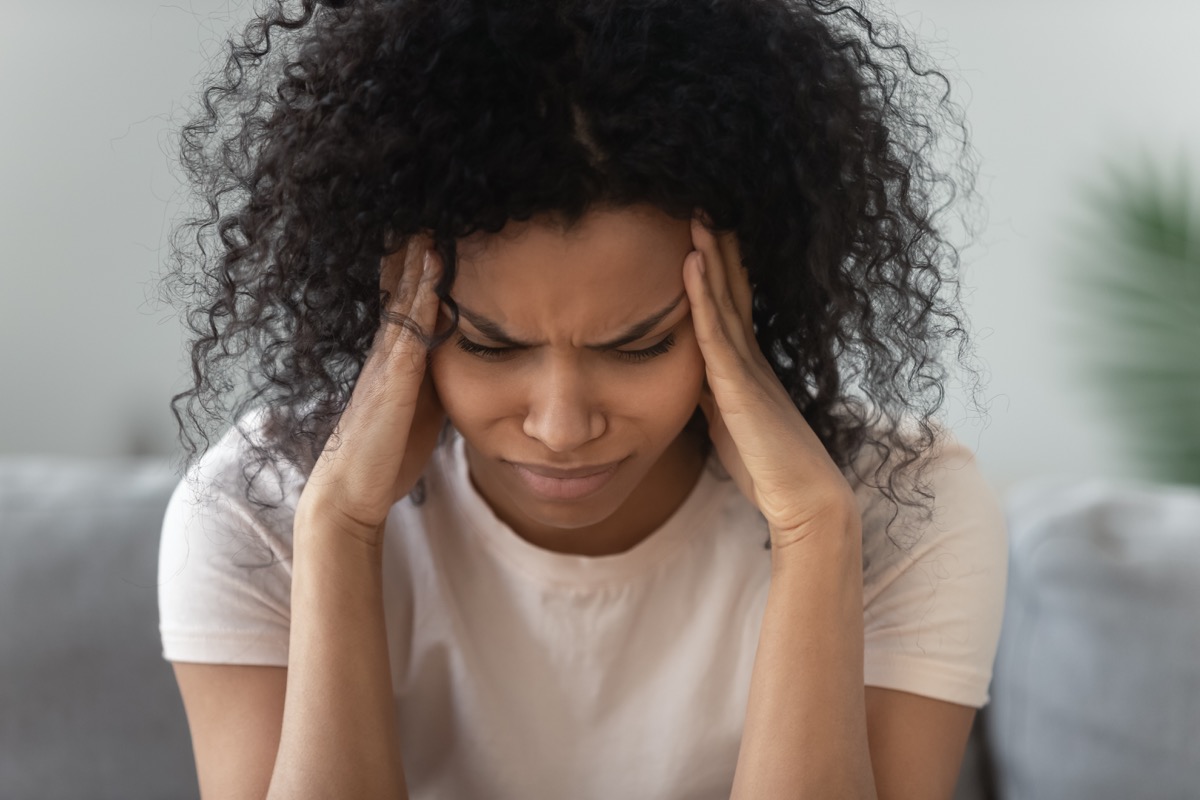
"When caffeine is consumed regularly, the body becomes dependent on its effects," writes Kelli Tornstrom, NP, a nurse practitioner in Neurology at the Mayo Clinic Health System based in La Crosse, Wisconsin. "And because caffeine narrows the blood vessels that surround the brain, when consumption is stopped, the blood vessels enlarge. This causes an increase in blood flow around the brain and pressures surrounding nerves. This can then trigger what is known as a caffeine withdrawal headache. Withdrawal headaches can last for a couple of weeks because it takes the body a while to adjust to not having caffeine in its system."
Sign up for our newsletter for more healthy eating news every day.
Frequent Urination or Inability to Control Urination
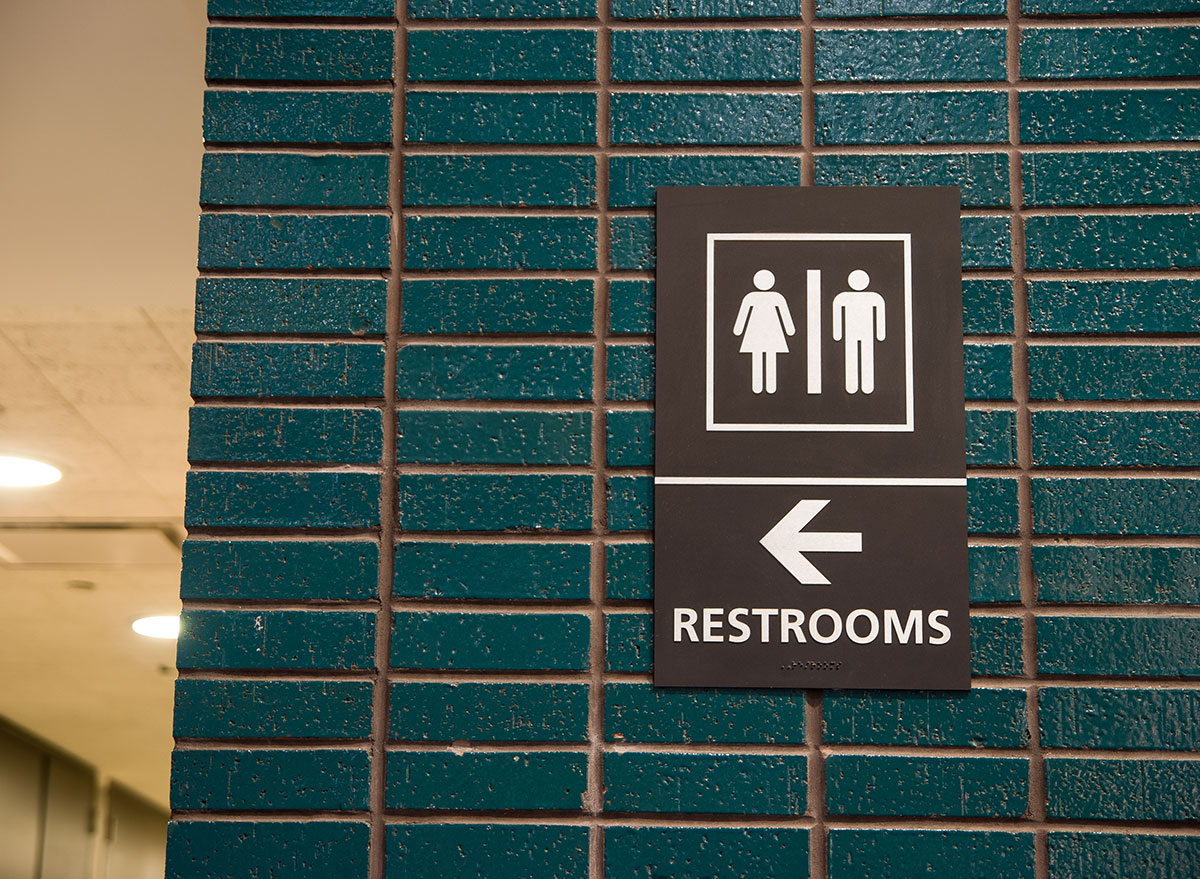
Caffeine is a diuretic, which means that it can stimulate your bladder and cause you to go to the bathroom more frequently. If you've experienced this as a symptom, you may want to take a closer look at your coffee consumption. "Avoid bladder irritants, such as caffeine, alcohol, and acidic foods," write the Mayo Clinic. For more on the science of drinking coffee, make sure you're fully up to speed on Everything That Happens to Your Body When You Drink Coffee.
Fast Heartbeat
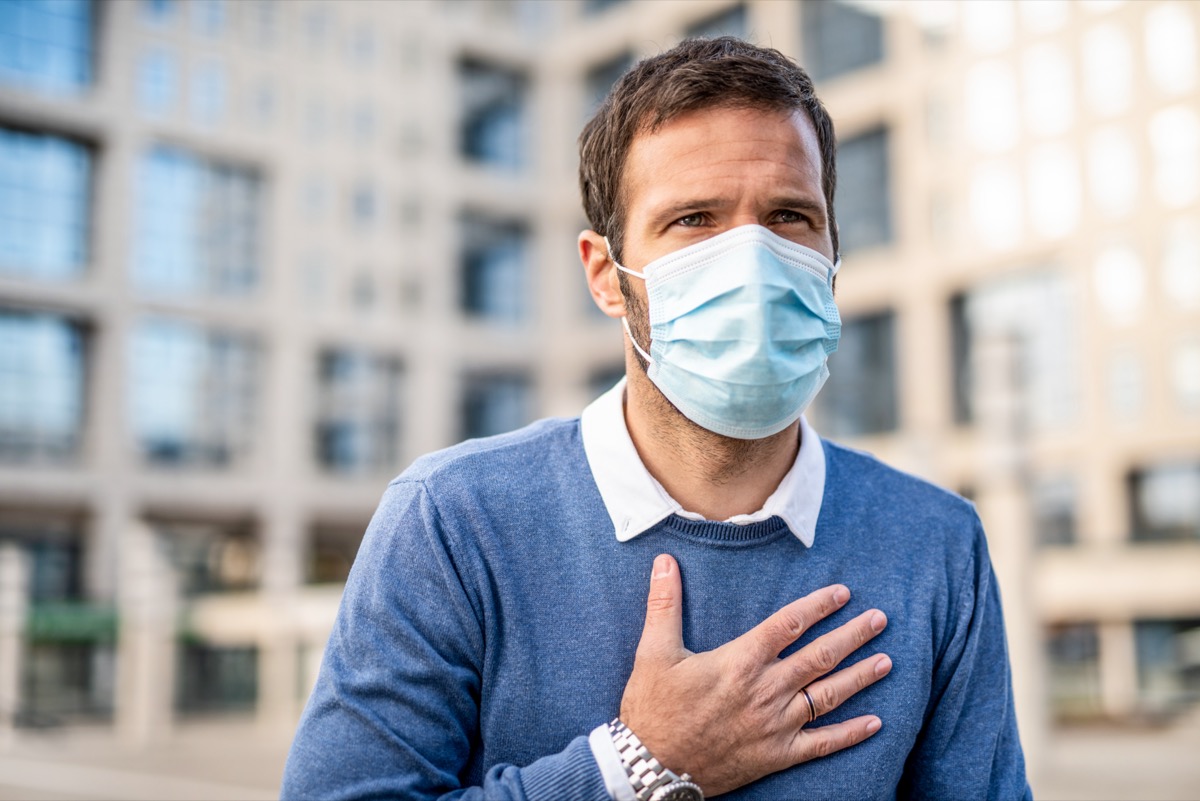
There are a number of things that can cause tachycardia, which is when your heart ups its beating to more than 100 times per minute "due to conditions unrelated to normal physiological stress," such as exercise, write experts at the Mayo Clinic. Among the symptoms, which include fever, low blood pressure, overactive thyroid, smoking, and sudden stress, is "drinking too many caffeinated beverages." To learn more about drinking coffee responsibly, make sure you're aware of The Single Most Dangerous Way to Drink Coffee, According to Scientists.
Muscle Tremors
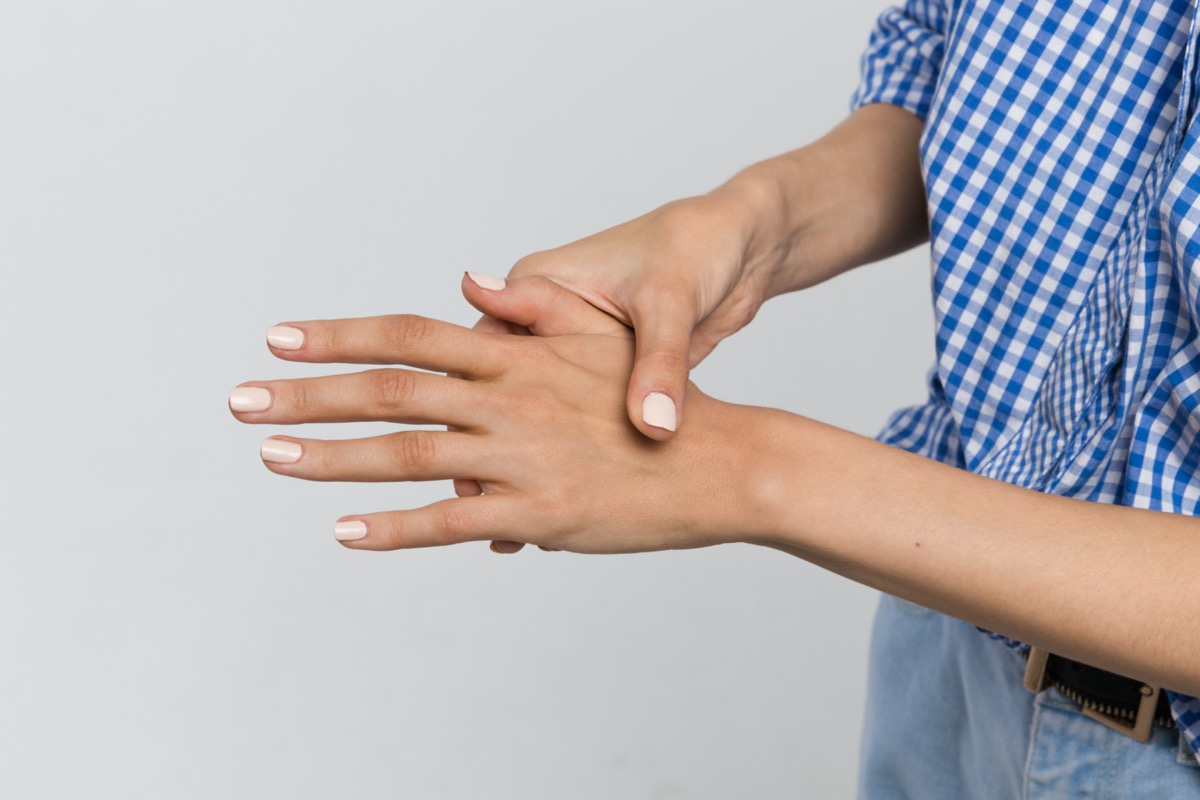
An "essential tremor" is a neurological disorder that can result in your body trembling or shaking out of your control. "The trembling occurs mostly in your hands—especially when you do simple tasks, such as drinking from a glass or tying shoelaces," reports The Mayo Clinic.
These tremors can be spurred by overconsumption of caffeine. Among the lifestyle and "home remedies" that the Mayo Clinic advises you to try—which include relaxation techniques and lowering your alcohol use—is reducing your daily coffee intake. "Avoid caffeine," the Mayo Clinic says. "Caffeine and other stimulants can increase tremors."
Insomnia
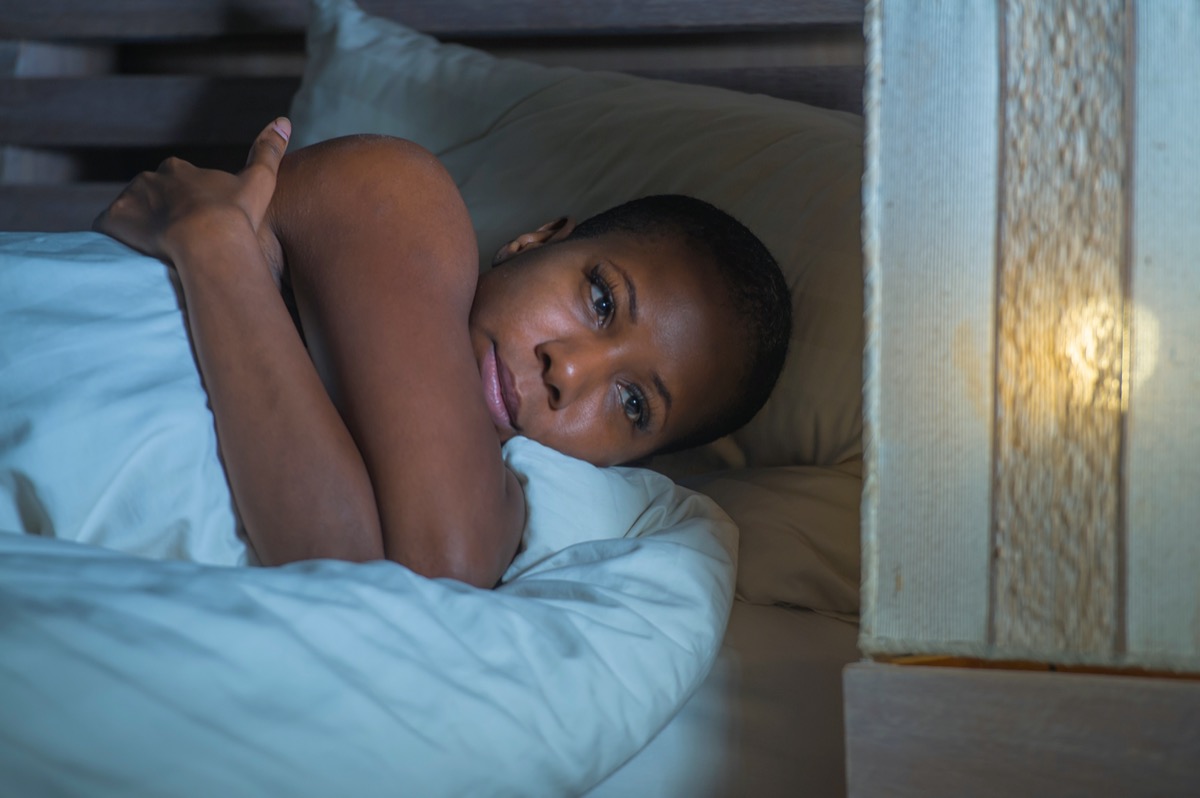
If you want consistent sleep, the experts at the Mayo Clinic advise you to avoid any sources of caffeine starting 10 hours before bedtime. The same goes for other stimulants. "The stimulating effects of nicotine and caffeine take hours to wear off and can wreak havoc on quality sleep," write the Mayo Clinic staff.
Nervousness
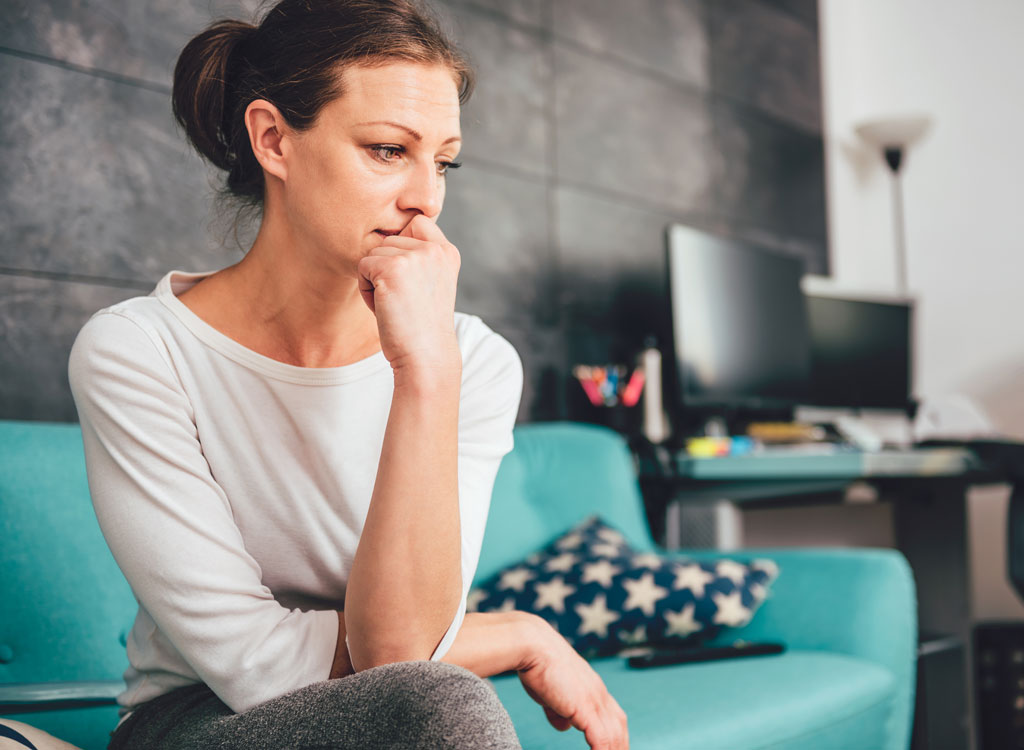
According to Craig N. Sawchuk, Ph.D., L.P., caffeine use is linked with feelings of nervousness and anxiety. If you're battling feelings of anxiety, he offers this advice: "Avoid caffeinated beverages. They can make you feel jittery and nervous and can interfere with sleep."
However, he also notes: "If your anxiety is severe or interferes with your day-to-day activities or enjoyment of life, you may need counseling (psychotherapy), medication or other treatment." For more coffee news, make sure you're aware of The Startling Reason Why You Shouldn't Drink Your Coffee from a Paper Cup, According to Science.








